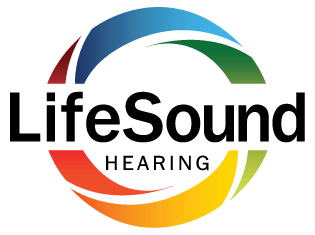In the past, we called them “books-on-tape,” a term that feels almost archaic today. With the advent of CDs and, more recently, digital streaming, the term “audiobook” has become the norm, and rightly so. Audiobooks allow you to enjoy literature while on the go without having to sit down and actually read.
Take a modern approach to reading with audiobooks
With audiobooks, you won’t need to actually read a book, you can just listen to it. It’s basically like someone is narrating the book for you. You can use this format to gain new knowledge, become immersed in captivating stories, and explore new concepts. Audiobooks can also function as a source of auditory training.
Auditory training – exactly what is it?
You may be wondering, “What exactly is auditory training”? It’s a specialized practice aimed at enhancing your ability to process, perceive, and decipher auditory information. This training becomes especially relevant for people using hearing aids. When somebody experiences untreated hearing loss, their brain progressively becomes accustomed to a quieter environment.
Consequently, new sounds can initially seem overwhelming when hearing aids are introduced.
Auditory training helps the brain adapt to these new auditory inputs, improving sound processing capabilities. For people who have auditory processing problems or language learning challenges, auditory training can also be really helpful. Auditory training both sharpens what you’re hearing and helps you have better comprehension.
How do audiobooks help with auditory training?
There are several ways in which audiobooks can help with auditory training:
- Listening Comprehension: Understanding speech involves more than just hearing the words; it requires comprehension of the content. Audiobooks challenge your brain to connect words with concepts, which can enhance your ability to follow conversations in everyday settings.
- Vocabulary Expansion: Exposure to a diversified assortment of words through audiobooks can improve your vocabulary.
- Pronunciation Practice: Communication skills can often become rusty after a period of social separation. Communication will be more successful after listening to audiobooks because they help with pronunciation.
- Enhanced Focus: When individuals listen to audiobooks, their attention is engaged for longer periods of time. They can help reacquaint you with sustained listening, which is particularly useful if you’re adjusting to new hearing aids.
- Speech Perception: Audiobooks are an excellent way for an individual to practice comprehending spoken language. Unlike audiobooks, with live conversation, you don’t have the ability to rewind and replay what was said. Your ability to comprehend spoken words can be refined by this practice.
Making the most of audiobooks as an auditory tool
For maximum results, hearing specialists often suggest pairing audiobooks with a physical copy of the book. For new audio inputs, the adjustment process could be accelerated by this relationship between written and spoken words. The auditory training process will be enhanced by using audiobooks, making them an ideal complement to hearing aids.
How to access audiobooks
Today, audiobooks are more accessible than ever. There is a wide variety of audiobooks available on streaming services like Audible and other platforms like Amazon. Also, listening to audiobooks wherever you find yourself is made possible with the advantage of smartphones.
If you’re struggling to find a suitable audiobook, podcasts provide a similar auditory experience on a wide range of topics. They can also be a practical way to improve your hearing while keeping your mind involved.
How to connect audiobooks to hearing aids
Bluetooth connectivity is a pretty common feature on many types of hearing aids these days which allows them to have a wireless link to your phone. This feature eliminates the need for separate headphones, allowing you to listen to audiobooks directly through your hearing aids, guaranteeing a seamless and high-quality auditory experience.
Talk to your hearing specialist
Setting up a consultation with your hearing specialist is the first step if you’re considering introducing audiobooks into your auditory training routine. They can help you improve your auditory skills by giving you individualized advice about how to get the most out of this resource.
Reach out to us today to explore how audiobooks can assist your hearing journey.
[blogcta]

